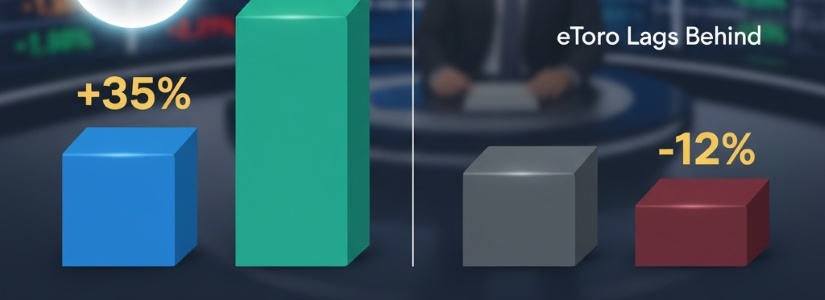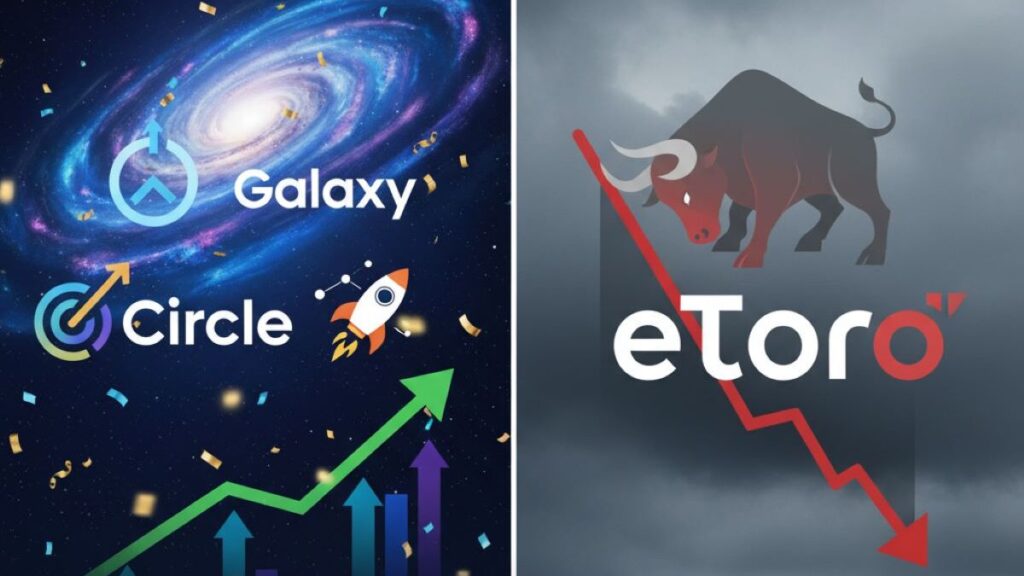TL;DR:
- Circle and Galaxy remain profitable amid post-IPO volatility.
- eToro’s stock has dropped nearly 40% since its debut.
- Investors favor crypto firms with stability and institutional focus.
Circle and Galaxy Digital have emerged as the only crypto firms still in profit after their public listings, contrasting sharply with peers like eToro, which has seen its valuation plummet. The divergence underscores how the post-IPO landscape for crypto companies remains volatile, shaped by market sentiment, regulatory pressure, and shifting investor confidence.
Only a Select Few Crypto IPOs Are Staying in the Green
Circle’s IPO performance has defied broader market struggles, bolstered by its strong USDC business and growing institutional demand. Despite industry headwinds, Circle has maintained profitability as its USDC stablecoin continues to play a central role in decentralized finance and cross-border transactions. Its consistent revenue stream from reserves and fees has helped sustain investor confidence even amid volatile market conditions.

Galaxy Digital has also managed to stay afloat, leveraging its diversified exposure to both digital assets and financial services. Founded by Mike Novogratz, Galaxy’s ability to balance trading operations, asset management, and infrastructure investments has enabled it to remain resilient. Its adaptability has positioned it as one of the few crypto-native firms capable of thriving in both bullish and bearish markets.
In stark contrast, eToro’s stock has plunged nearly 40% since its debut, reflecting broader challenges in retail trading platforms. Once hailed as a pioneer in social investing, eToro has faced declining user growth and lower trading activity. Rising competition and regulatory scrutiny have further dampened its market performance, making it one of the biggest post-IPO underperformers in the crypto-fintech space.
The contrasting fates of these companies illustrate the uneven recovery within the crypto sector. While Circle and Galaxy benefit from diversified and institutional-oriented models, retail-driven platforms like eToro are struggling to adapt. The market’s preference appears to be shifting toward firms that can balance transparency, compliance, and profitability — a sign that investors are seeking stability in an industry long defined by volatility.










